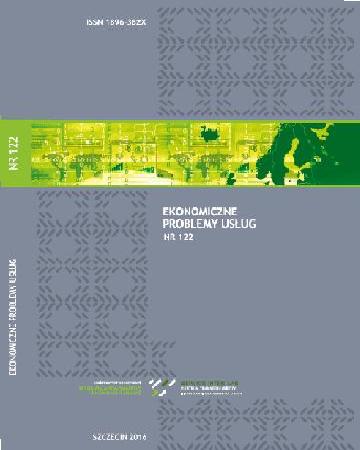
ISSN: 1896-382X
eISSN: 2353-2866
OAI
DOI: 10.18276/epu.2015.119-11



Issue archive /
nr 119 2015
The Employment Prospects and the Development of the Scientific Community in the Context of the Modernization of the Belarusian Economy
| Authors: |
Sergey
Solodovnikow
Belarus National Technical University, Faculty of Technologies of Management and Humanitarization Olga Mazurenko Belarus National Technical University, Faculty of Technologies of Management and Humanitarization |
| Keywords: | technical and technological modernization post-industrialization moderni¬zation of the transitive economy |
| Data publikacji całości: | 2015 |
| Page range: | 14 (161-174) |
Abstract
The main principles of the creation of the social and scientific association while modernizing economy of the Republic of Belarus have been determined on the basis of the post-industrialization concept. They are the following: the principle of parallelism of the technical and technological modernization of economy and formation of postindustrial labor relations; the principle of labor-saving on the basis of the high technological industry; the principle of strategic orientation on the global technological tendencies; the principle of long life education of specialists; the principle of state promotion of scientific achievements into production; the principle of the growing influence of moral and ecological priorities. The necessity of forming effective information economy for creating social and scientific association has been demonstrated.
Download file
Article file
Bibliography
| 1. | Bell D., The Coming of Post-Industrial Society: A Venture in Social Forecasting, New York, Basic Books, 1973. |
| 2. | Brzezinski Z., Between Two Ages, New York, 1970. |
| 3. | Castells M., The Information Age: Economy, Society and Culture. Vol. I: The Rise of the Network Society, London and Oxford, Blackwell Publisher, 1996. |
| 4. | Castells M., The Rise of the Network Society: 2nd ed., Wiley-Blackwell, 2010. Changing Classes: Stratification and Mobility in Post-Industrial Societies, Esping-An-dersen G. SAGE Publications, 1993. |
| 5. | Gershuny J., After Industrial Society? The Emerging Self-Service Economy, Macmillan, 1978. |
| 6. | Inozemtsev V, Beyond Economic Society, Moscow, Academia-Science, 1998. Ivanter V, Labor-Saving as a Priority, "The Economist" 2011, No. 1. |
| 7. | Izmailova M., Socio-Economic Consequences of the Post-Industrial Stage of Develop-ment of the Society, Bulletin of the Russian State Trade and Economic University, 2008, No. 6 (27). |
| 8. | Machlup F., The Production and Distribution of Knowledge in the United States, Prince¬ton University Press, 1962. |
| 9. | Myasnikovich M., About the Conceptual Directions Providing the Innovative Growth of the Republic of Belarus in the Medium Term, Economic Bulletin of the INAH of the Ministry of Economy of the Republic of Belarus, 2010, No.12. |
| 10. | Roszak T., Where the Wasteland Ends: Politics and Transcendence in Postindustrial So- |
| 11. | ciety, 1972. |
| 12. | Solodovnikov S., Socio-Class Structure of Belarus, Russia and Ukraine, Grodno, 2011. Solodovnikov S., Socio-Economic Determination Systems, Minsk, 2002. |
| 13. | Solodovnikov S., The Transformation of the Socio-Class Structure of the Belarusian Community: Methodology, Theory, Practice, Minsk, Law and Economics, 2003. |
| 14. | The Knowledge Society, Holland, 1984. |
| 15. | Toffler A., Toffler H., Creating a New Civilization. The Politics of the Third Wave, Turner Publishing, Atlanta, 1993. |
| 16. | Veredyuk O., The Determinants of Employment in the Concept of Post-Industrial Society, Bulletin of St. Petersburg State University, 2010, Ser. 5, Vol. 4. |